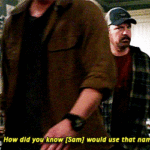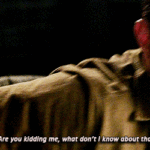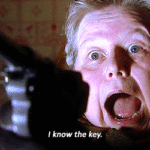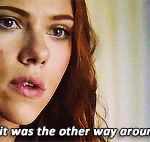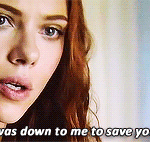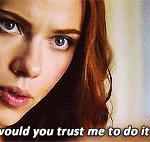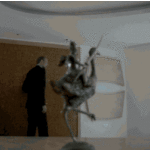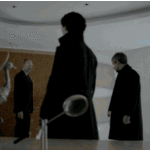What happens when you view ‘muted’ Sherlock.
I had two friends over last night, well they are are still here asleep in the guest bedroom, and the plan was to watch the Sherlock pilot as they had never seen it. They are fans of the show but not in the fandom, so have no knowledge of our metas/thoughts on the series. As I started to play the pilot we realised we didn’t have sound, [turns out the SCART lead was out] but by the time we fixed it, on screen John and Sherlock had met in the computer lab. One friend, Brendan, made the comment;
‘Oh if I didn’t know better, I would be settling in for a gay porn movie, look at these two boys.’
So we decided to leave the sound/subtitles off and just watch to see how the pilot played to ‘virgin’ observers. It became fun and needless to say we ended staying up all night and watched the entire series on mute. These are our impressions based on just the visuals and forgetting everything we know about the series.
“Whatever it takes, whatever happens.” – Sherlock Holmes
John is in danger, and Sherlock is protecting him. I can’t wait to see the depth of both of these go to in series 4.
hold the fuck up
I’ve just realized some implications here. Namely, that John thinks there’s no one Sherlock would go out of his way to protect. We, the audience, know that’s patently fucking stupid, because we saw Sherlock do just that in Reichenbach. So why does John not make that same connection?
Has Sherlock not told John that he “died” because John’s life was threatened?
No, John knows it’s him Sherlock is protecting. As evidenced by the fact that he comments on it to Lestrade, John knows that his chair being back out in the living room means something, and then when he sits (quite possibly to try to figure out what Sherlock wants him to do with it) check out his expression of realization when he lays eyes on the perfume bottle. I’m not entirely sure whether he thinks Sherlock had it left there as a message that he was specifically protecting Mary or John, but after Sherlock’s promise at the wedding he certainly knows it means one or the other of them. And in a sense, protecting either of them is protecting both. That’s the point of the whole chain of vulnerabilities.
(However, according to Sherlock himself, John’s life was no longer in danger by the time he stepped off the roof. Mrs. Hudson’s and Lestrade’s lives, however, may have been. So Sherlock was never protecting John there, but it does show he cares enough to take a risk for his friends. On the other hand, he’s also enough of an ass to then leave them hanging for two years. So, you know. John may find him understandably hard to read sometimes. :D)
Bucky…was still Bucky?
I found it very interesting when in the “but I knew him” scene where The Winter Soldier is being “repaired”,
Pierce tells Bucky:
“Your work has been a gift to mankind. You shaped the century. And I need you to do it one more time. Society is at a tipping point between order and chaos. Tomorrow morning we’re gonna give it a push. But if you don’t do your part, I can’t do mine. And HYDRA can’t give the world the freedom it deserves.”
Pierce tells this to a confused and broken Bucky, as if coaxing him with the idea of Hydra giving the world the “freedom it deserves” as a means to get him to snap out of his slump and back to The Winter Soldier.
When that doesn’t work, he gets wiped.
Bucky’s been brainwashed into The Winter Soldier for almost a century yet Pierce tells him this…
Why tell him this?
Maybe…for all these years, the brainwashing wasn’t just about being the perfect weapon but tricking him thinking what he was doing was right thing?
James Buchanan “Bucky” Barnes…the man who willing sacrificed himself for his best friend and his country…
Could it be, this whole time…
he was so unflinching in his role as the Winter Soldier simply because he thought he was being the hero?
Maybe the tears in his eyes before being wiped…
aren’t only just for the confusion for his flashes of memory brought about by seeing Steve for the first time in seventy years…
but the realization that by chance HE wasn’t actually the hero…
He even had his own star…
You people need to stop with the insightful ideas. *crying again*
A Guide to Writing Sherlockian-Tea Habits
or How to Prevent Your British Readers Thinking “wtf is John doing with that lapsang souchong?”
A reprint of the Reminiscences of enigmaticpenguinofdeath, a Tea-Drinking Englishwoman.
First off, I am not a tea sommelier. I don’t sell or work with tea, I have no professional qualifications in anything to do with tea. But I do drink tea, and I am British – English, to be more precise (and yes people from far-off lands, there is a difference, but I’ll stick to British for now). This means I am as well placed as anyone from this little island to be arrogantly judgemental about how some poor misguided people who aren’t fortunate enough to be British write strange, wtf-inducing descriptions of the consumption of tea. I am writing this with particular reference to Sherlock fanfiction and characters such as John, Sherlock, Mycroft and Greg, but some of my points are applicable to wider British-set-fandom fics in general.
It’s alright now, poor confused tea-worriers; I am here to help you. Not everyone likes to be individually Brit-picked so here is a primer in tea to set you on the right path. Let’s get down to business.
pardon me if its mentioned before, realize in HLV John kicks down wiggins and kicked chair in 221b after SH reappearance with his psychosomatic limp. I can’t help but feel that theres a deeper significance to the limp than his adrenaline/ risk addictn (or dependence) He was limp bec of meaningless existence; SH came so he feels hes doing something/ can move on- no longer limp; then emotional rush/ tension that gives him impulse to use leg to do somethin like how someone want to stomp when mad
Oh yeah. No, people don’t develop psychosomatic injuries over adrenaline addiction. I think it’s pretty obviously tied to John’s feelings of uselessness. It’s a physical manifestation of his sense that there’s no purpose or place for him, and nothing for him to contribute.
John’s clearly a man who needs to feel like he’s needed. Not just useful—because John is a doctor, he’s always got something valuable he can contribute to society, and furthermore he clearly doesn’t suffer from fundamental self-esteem issues. He needs to feel like he’s doing something that requires him,something that not just anybody can do. Any doctor can treat hemorrhoids and strep throat. But when he was in Afghanistan, with a team, he wasn’t interchangeable with just anybody else.
And when he’s with Sherlock, there’s no one else who could be there, who could fill the role in Sherlock’s life that John does.
I think this tells us something about why and how John grieved. Because when he lost Sherlock, he didn’t only lose a friend. He lost his place in life. This has a similarity with losing a spouse, or a parent when you’re a child, in that the person you’ve lost isn’t only someone you care for, but someone who forms an important foundation in your life. In a very practical, real sense, their loss leaves you struggling to find your bearings and rebuild your entire life around yourself.
(Sherlock really has no conception of what he did to John with that stunt. I don’t think he can; I don’t think he’s got the experience or background to have any idea how extensively he shook up John’s life.)
It’s worth noting that John is still limping in TEH, even though he’s met Mary and is meaning to propose. He loves her, and she brings much-needed stability back into his life, but this indicates that he isn’t finding his purpose with her. He doesn’t feel like this relationship with her is the thing he’s needed for.
And I like the fact that Sherlock didn’t reallycure John’s limp. He made it go away because he gave John a purpose; he didn’t fix whatever it is in John’s head that makes him need to be needed so badly that he’d develop a psychosomatic limp over it in the first place.
That limp represents John’s sub-conscious (or maybe not so sub-conscious; if you asked him he might well tell you this to your face) equating of uselessness and brokenness. He sees himself as having been discarded by the Army due to no longer being able to do the job; ergo, he’s a cripple, he’s broken, he’s refuse.
My apologies to people with disabilities in the audience; I don’t mean that this is true, because it’s so very not. What is true is the frustration that can arise from feeling like you’re less than fully functional. For a lot of us, even a weekend of flu-ridden sofa-coma is enough to leave us feeling like a lump or a burden on the people taking care of us. For John, clearly he’s turned that frustration in upon himself.
But think about this one for a moment. Lots of us want or need to be needed. But for that urge to be rooted so bone-deep that John is in physical pain, his body actually physically twisted from the deprivation when he can’t fulfill it… He seems to have picked that limp up subsequent to being invalided out of the Army, and it’s understandable if that gave him a sense of being kicked to the curb. But even before that, he must have had a deep sense that being useful to other people is an overriding priority. How does a person learn that the most important thing in their life is that they need to be useful to someone else? Where could he have come by this sense of needing a One True Place in life?
There’s not a single possible answer. Some people suffer abuse that teaches them that if they’re not being useful, they’re being a waste of space. Other people grow up being told that they’re meant for Great Things, that they’re bound to do something Important, until they feel like they’re a failure if they’re not. But I think we can be sure that there’s something fractured in John’s psychology, and it goes way deeper than John simply having a high tolerance for risk.
You might also ask yourselves, what kind of history could a person come from to leave them blase enough with being called stupid’ or ‘an idiot’ on a daily basis to live with Sherlock without ever getting riled or taking those words to heart? What happens in a person’s life to give them a ‘love for danger’ that in fact flirts with emotional masochism? Watson canonically has a gambling problem. In the show, John gambles, too. He gambles with trusting Sherlock to keep him safe no matter what kind of hair-raising insanity Sherlock pulls them into, and he gambles with whether the people he’s chosen to love will cut him too deep for him to bear.
It’s not news that the characters on this show are all, um, questionable in their various ways (let’s be honest, it’s modern noir, they were never meant to be upstanding ethical icons of good behavior). But whereas Sherlock is batshit but not especially broken, John is really, truly a fucked up mess underneath all that cuteness and stoicism and friendly demeanor.

